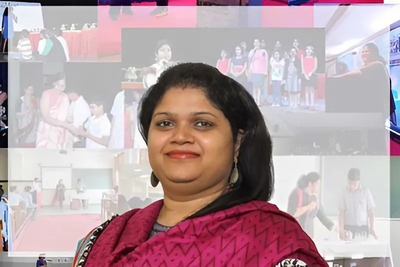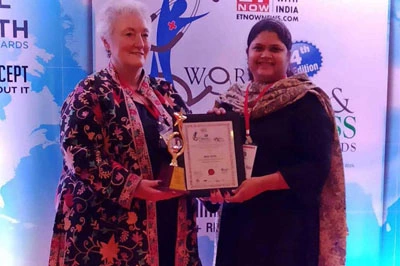
About me
Meet Dr. Renu Goyal - Your Trusted Clinical Psychologist in Noida
A qualified, trained, and licensed clinical psychologist in Noida and Delhi NCR, with a Ph.D. in Psychology and over 17 years of professional experience in the field. Specializing in evidence-based therapy for children, she provides psychometric assessments, accurate diagnoses, and personalized therapies to address a wide range of psychological challenges, including anxiety, depression, ADHD, autism spectrum disorder, learning disabilities, and behavioral issues.
Her client-centered and individualized therapeutic approach has helped countless children overcome emotional and developmental challenges. Dr. Goyal works closely with parents and caregivers to create customized treatment plans, empowering children to build resilience and lead happy, healthy lives. She brings expertise gained from her experience with renowned hospitals and schools in Delhi NCR and is an RCI-registered clinical psychologist.
Dr. Goyal is an affiliate member of esteemed organizations like the American Psychological Association (APA), the Indian Association of Clinical Psychologists (IACP), and the Rehabilitation Council of India (RCI). Her contributions to the field have been recognized with two prestigious awards from the World Mental Health Congress, organized by the World HRD Congress.
In addition to her clinical practice, Dr. Goyal is deeply involved in child psychology research and the role of parenting in shaping a child's emotional well-being. She has published numerous research articles in academic journals, presented papers at national and international conferences, and written articles in popular magazines like Meri Saheli, Responsible Parenting, and PsyInsight.
Dr. Renu Goyal is also the co-author of the Brain-Based Intelligent Test (BBIT), a psychometric tool developed by Indian psychologists. The BBIT assesses cognitive processes such as planning, executive functioning, and information integration, aiding teachers, curriculum developers, and clinicians in improving academic outcomes and diagnosing conditions like stroke, epilepsy, and traumatic brain injuries.
As part of her commitment to social responsibility, Dr. Goyal has conducted free workshops in schools for children, parents, and teachers on topics such as Good Touch vs. Bad Touch, Learning Disabilities, and Bullying Awareness.
Her vision is to establish a school where every child's unique strengths are celebrated, creating an environment where children can transform their weaknesses into strengths and flourish holistically.
Associations:
- Rehabilitation Council of India (RCI)
- Indian Association of Clinical Psychologists (IACP)
- American Psychological Association (APA)
- Reiki Healing Foundation
By blending her professional expertise, research insights, and dedication to child development, Dr. Goyal continues to make a profound impact on the lives of children and their families.
Awards and Media Coverage

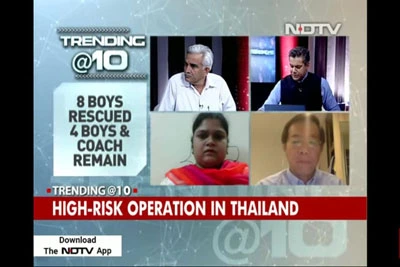
Thailand - Cave Incident - NDTV Coverage

World Mental Health Congress 2023
Area of expertise
Psychometric Assessments
Learning Disability
Autism Spectrum Disorder
ADHD / ADD
Behavioral Counseling
School Workshops/Programs

How we care for your child?
ABC's of Learning Disability
Some possible challenges may include:
- Difficulty with academic skills
- Struggles with memory, attention, or organization
- Trouble with social skills or communication
- Frustration, anxiety, or low self-esteem related to learning
Symptoms/When to Seek Help
- Difficulty with reading, writing, math, or other academic skills
- Struggles with memory, attention, or organization
- Delayed or slow language development or difficulty following instructions
- Poor hand-eye coordination or trouble with social skills or communication
- Low self-esteem, frustration, anxiety, or behavior issues related to learning
Treatment / Home Remedies
- Creating a structured routine
- Encouraging regular exercise to promote health
- Providing a distraction-free study environment
- Breaking down complex tasks into smaller steps
- Using creative teaching methods to help with understanding
- Encouraging activities that are enjoyable
- Praising and rewarding effort and progress
ABC's of Autism Spectrum
- Difficulty with social interaction, such as making eye contact, sharing emotions, and understanding social cues
- Repetitive behaviors or routines, such as rocking, hand-flapping, or obsessively lining up toys
- Delayed or limited language development, or difficulty with nonverbal communication
- Hyper- or hypo-sensitivity to sensory input, such as sound, touch, taste, or smell
- Fixation on specific interests or topics
Symptoms/When to Seek Help
- Delayed speech or language skills or difficulty with social interactions or communication
- Difficulty with nonverbal communication, such as interpreting facial expressions
- Repetitive behaviors or routines, such as lining up objects or having a strict schedule
- Strong focus or obsession with certain interests or topics.
- Sensory sensitivities, such as being bothered by certain textures, sounds, or smells
- Difficulty adapting to changes in routine or surroundings
Treatment / Home Remedies
- Creating a structured and predictable routine for the child.
- Using visual aids such as picture schedules and social stories to help with communication and understanding.
- Providing a safe and sensory-friendly environment for the child.
- Encouraging play and socialization with peers.
- Providing a healthy and balanced diet.
ABC's of ADHD / ADD
The exact causes of ADHD and ADD are not fully understood, but it is believed that genetics, brain function, and environmental factors may all play a role. There is no cure for ADHD or ADD, but there are treatments available to help manage symptoms. These may include medication, therapy, lifestyle changes, and support from family, friends, and educators.
It is important for people with ADHD or ADD to receive a proper diagnosis and treatment plan, as untreated symptoms can lead to long-term difficulties. If someone is experiencing symptoms of ADHD or ADD, it is recommended to speak with a healthcare professional for guidance and support.
Symptoms/When to Seek Help
- Inability to focus or pay attention to tasks
- Difficulty completing tasks or following through on instructions
- Hyperactivity or restlessness
- Impulsivity or acting without thinking
- Forgetfulness and poor organization
- Difficulty with time management and planning
- Difficulty with social interactions and making friends
Treatment / Home Remedies
- Establish routines and stick to them
- Break down tasks into more manageable steps
- Use visual aids and timers to help with time management
- Provide a quiet, distraction-free study environment
- Encourage regular exercise and outdoor play
- Limit screen time and electronic device use
ABC's of Intellectual Disability
It can be caused by genetic factors, prenatal exposure to toxins, infections, or trauma during birth or infancy. Intellectual disability is often classified by severity - mild, moderate, severe, and profound.
Early intervention and support can be beneficial for individuals with intellectual disabilities. This can include specialized educational programs, therapy, and assistive technology. Families can also provide support and encouragement at home by setting realistic expectations, providing structure and routine, and promoting independence through life skills training.
Symptoms/When to Seek Help
- Difficulty learning new information and skills
- Delayed language development and trouble communicating effectively
- Poor problem-solving and reasoning skills
- Difficulty with abstract thinking and understanding concepts
- Lack of social skills and difficulty in social situations
- Poor memory and forgetfulness
- Difficulty with daily living tasks such as dressing, feeding, and grooming
Treatment / Home Remedies
- Early intervention programs and educational support services
- Occupational therapy to help with daily living activities
- Speech therapy to improve communication skills
- Behavioral therapy to address problem behaviors
- Family support and counseling services
Testimonials
Just watch what Parents say.
Parents have consistently rated Dr. Renu Goyal as a trusted psychologist in Noida for her ability to connect with children and provide effective solutions for mental health challenges.

Social Initiatives - A Gesture for Society
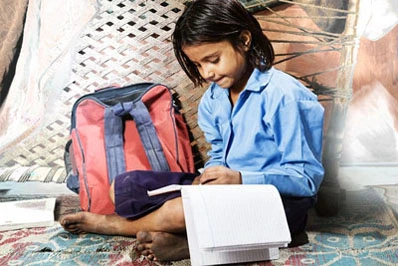
Special subsidized packages for EWS category
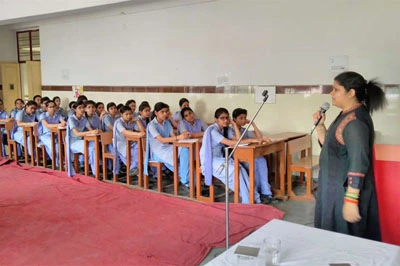
Awareness Workshops on Mental Health for Students & Teachers
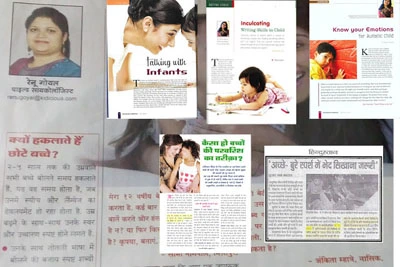
Expert Writeups for various Magazines/NewsPapers on Mental Health

Schedule a consultation with Dr. Renu Goyal today to discuss your child's mental health needs. Offering mental health consultations for children and school counseling programs, Dr. Goyal is here to help.
Having a query? Ask me.
Tell me a brief about your query and a little bit background to get started!

